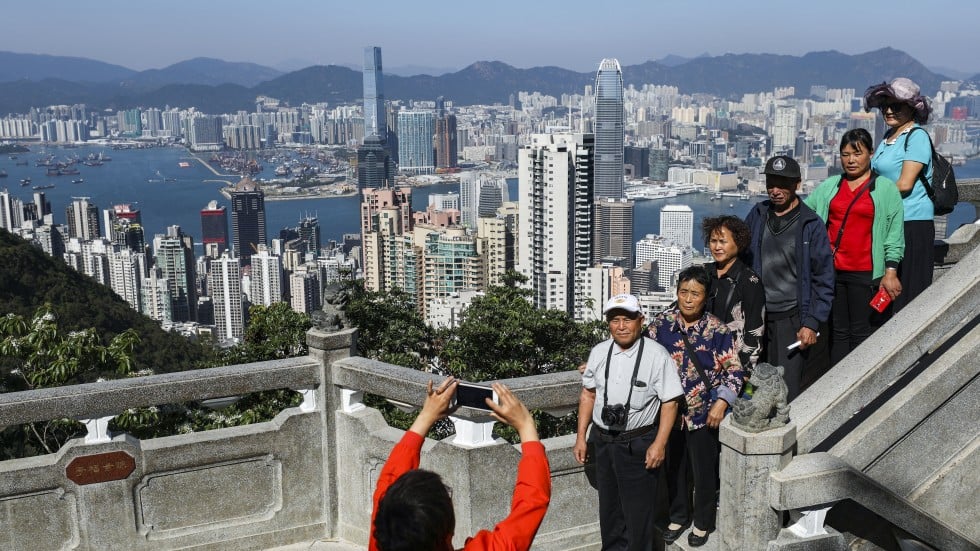
The tourist arrivals to Hong Kong soared to a record high of 65.1 million last year, up 11.4 per cent on 2017, as the Tourism Board rolled out a series of initiatives to counter what it expected to be a “bumpy and unpredictable” year.
The growth in tourist arrivals was mainly driven by mainland Chinese tourists, with about 51 million of them visiting the city last year, a rise of 14.8 per cent on the previous year. Overnight Chinese visitors saw an increase of 7.4 per cent, while Chinese day trippers rose by 20.1 per cent. The cruise passenger throughput unexpectedly dropped 3 per cent to 875,000. The number of cruises that docked at the city also went down from 245 in 2017 to just 210 last year.
Anthony Lau Chun-hon, the board’s executive director said that they are expecting 2019 to be a bumpy and unpredictable year because there are many factors that can affect tourism. The mainland Chinese economy has shown signs of a slowdown. That means Chinese tourists could be spending less money when they travel.
Anthony Lau Chun-hon added that other factors included uncertainty surrounding the global economy, as well as the strong US currency, which renders the Chinese renminbi less valuable. The Chinese tourists have also been increasingly travelling to Southeast Asian countries, which Lau described as “fierce competitors”. As the tourism industry celebrated the record growth, the influx of Chinese tourists has caused unease among Hongkongers. The concern groups have called on the Hong Kong government to cap the number of Chinese tourists allowed to visit the city, saying that residents’ lives have been disrupted by them.
The groups have complained that the disruption has become more intense since the Hong Kong-Zhuhai-Macau Bridge, which connects the city to mainland China, opened in October. The overnight visitors from Japan rose 4.8 per cent last year to 852,000. For overnight Thai visitors, the increase was 4.5 per cent, to 450,000.
But there was a drop of 5.9 per cent for overnight Taiwanese visitors to 807,000. Overnight tourists from South Korea, Indonesia and Singapore also fell, by 3.8 per cent to 1.1 million, 11.1 per cent to 343,000, and 1.8 per cent to 481,000, respectively. For long-haul visitors, overnight American visitors rose 7.1 per cent to 932,000; followed by a 3.6 per cent increase of overnight German visitors to 165,000. Overnight French visitors dropped 0.5 per cent to 150,000.
The total overnight visitors’ per capita spending for the first three quarters last year was HK$6,537, up 4.3 per cent. The increase for Chinese visitors was smaller at just 2.5 per cent, to HK$6,961. On the drop in cruise passengers, Lau said since the cruise business started in Asia in 2014, there has been an “oversupply” of cruises selling substandard services. As a result, travellers have started to have second thoughts about cruises, Lau added. Looking ahead, the board said Chinese tourists craved “in-depth” travels in Hong Kong, rather than just going to the usual tourist spots. One of the board’s strategies this year will be to get mainlanders to visit places such as the Geopark, the Ha Pak Nai mudflat in Yuen Long, and Lau Fau Shan.
Tags: Chinese tourists, hong kong, Tourism